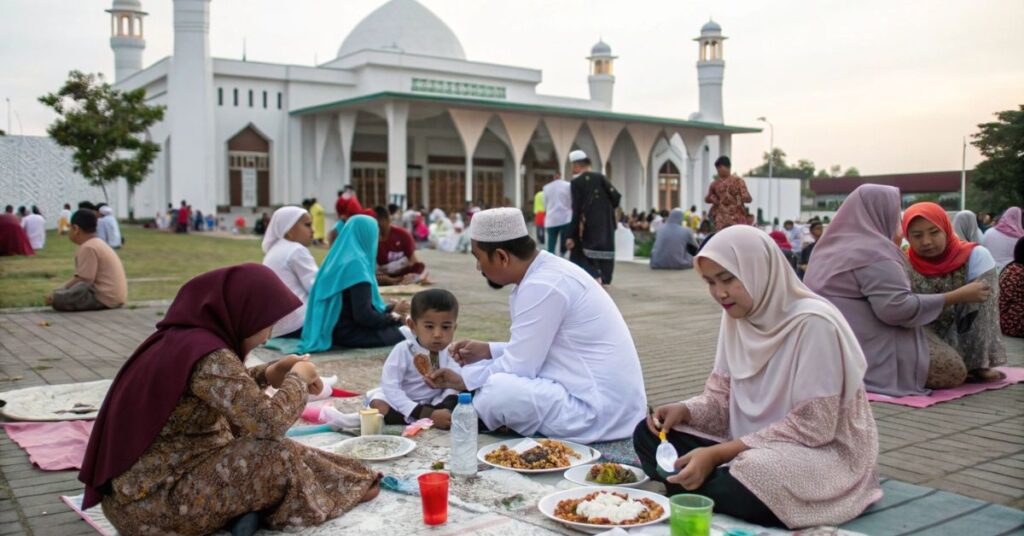Opferfest, also known as Eid al-Adha, is one of the most important Islamic festivals celebrated by Muslims around the world. This festival isn’t just about the ritual of sacrifice — it’s a powerful reminder of faith, gratitude, and compassion. In this blog, we’ll explore what Opferfest is, why it matters, how it’s celebrated, and what it teaches us about humanity.
What is Opferfest (Eid al-Adha)?
Opferfest literally translates to “Festival of Sacrifice.” It commemorates the story of Prophet Ibrahim (Abraham), who was willing to sacrifice his son as an act of obedience to God. At the last moment, God replaced his son with a ram, symbolizing that faith and intention matter more than the act itself.
This festival falls around the same time as the annual Hajj pilgrimage to Mecca and is celebrated on the 10th day of Dhu al-Hijjah, the last month of the Islamic lunar calendar.
How is Opferfest Celebrated Around the World?

Muslim communities across the globe celebrate this day with a mix of spiritual devotion and festive joy. Some common practices include:
- Performing the Eid prayer at the mosque or in open spaces
- Sacrificing an animal (usually a sheep, goat, cow, or camel) to honor Prophet Ibrahim’s devotion
- Distributing meat among family, friends, and especially the less fortunate
- Wearing new or traditional clothes and spending time with loved ones
- Sharing meals and sending Eid greetings
The act of sharing and caring is central to this festival.
The Deeper Meaning Behind the Sacrifice:
While the ritual of animal sacrifice is symbolic, the deeper meaning of Opferfest lies in:
- Surrendering to God’s will: Just as Ibrahim was ready to sacrifice what was dearest to him
- Empathy and generosity: Giving a portion of what you have to those in need
- Reflection and gratitude: Appreciating life’s blessings and renewing spiritual commitment
It’s a time when people are encouraged to look beyond themselves and help build a kinder, more giving society.
Modern Practices and Ethical Awareness:
In today’s world, many Muslims are becoming more conscious of ethical and sustainable ways to observe Eid al-Adha. Some choose:
- Certified humane animal farms
- Donating money for charity instead of performing physical sacrifice
- Supporting local food banks or international relief efforts
Technology has also enabled people to donate Qurbani online, reaching remote and underserved areas globally.
FAQs:
What is Eid-ul-Adha called in German?
It is called Opferfest, which means “Festival of Sacrifice” in German.
Why is Eid al-Bakrid celebrated?
Bakrid is celebrated to remember Prophet Ibrahim’s willingness to sacrifice his son for God. It teaches us about faith, obedience, and sacrifice.
Why do we celebrate Eid-ul-Adha?
We celebrate Eid-ul-Adha to honor Prophet Ibrahim’s devotion, perform Qurbani (animal sacrifice), and share with the needy, family, and friends.
How many days difference are there between Eid-ul-Fitr and Eid-ul-Adha?
There are about 70 days between Eid-ul-Fitr and Eid-ul-Adha, based on the Islamic lunar calendar.
Conclusion: A Festival of Unity and Compassion!
Opferfest is more than just a religious ritual — it’s a universal message of selflessness, compassion, and faith. It reminds us of the importance of giving, of placing others before ourselves, and of staying true to our values, even in moments of challenge.
The Ultimate Guide to Headwear-Focused Fashion Style, Culture, and Identity







Leave a Reply